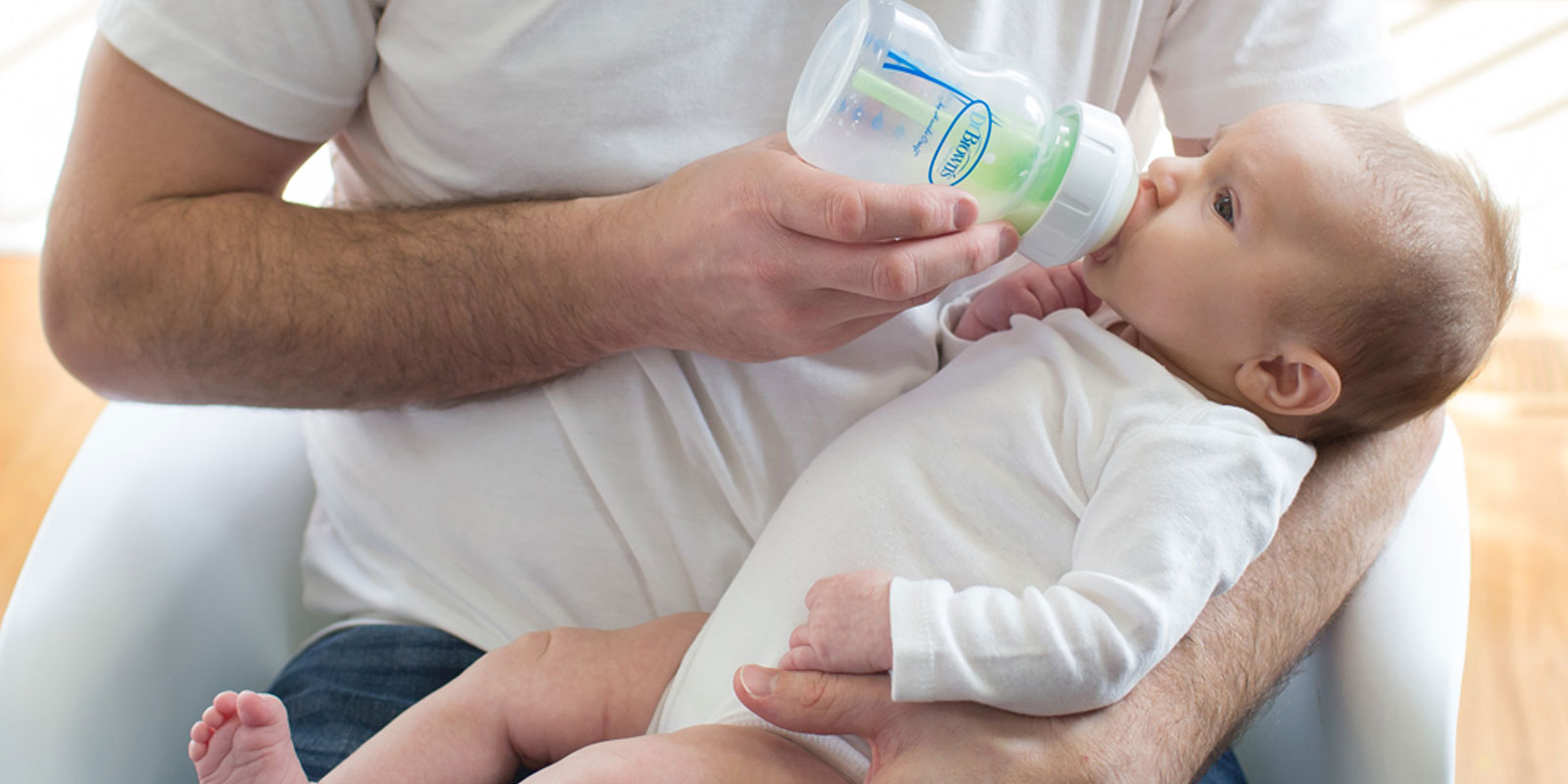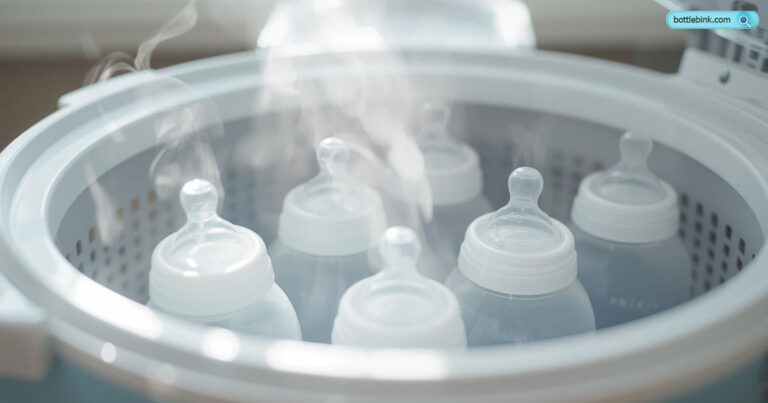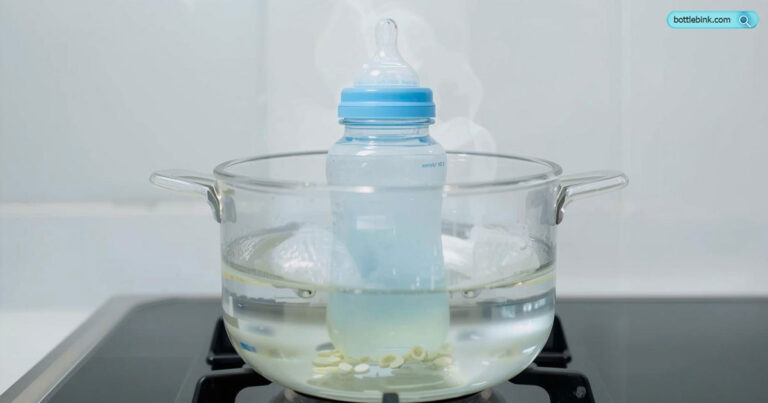Why is My Baby Squirming While Bottle Feeding? Top Causes Explained
Are you wondering why your baby squirms every time you try to feed them with a bottle? You’re not alone.
Many parents notice this restless movement and worry if something is wrong. Understanding why your baby wiggles and twists during feeding can help you make the experience more comfortable for both of you. Keep reading to discover the common reasons behind this behavior and simple tips to calm your little one while bottle feeding.
Common Reasons For Squirming
Babies often squirm during bottle feeding for several common reasons. Understanding these can help parents respond with care. Squirming may signal a need or a discomfort that babies cannot yet express with words.
Recognizing why your baby moves a lot can make feeding times easier. Let’s explore some typical causes of squirming.
Hunger And Feeding Patterns
Babies have small stomachs and may feed in bursts. Squirming can mean your baby is very hungry or still full from the last feeding. Sometimes, babies get fussy when they need more milk quickly. Other times, they might feel full and want to stop.
Watching your baby’s cues helps you know when to offer more or pause. Feeding at regular times can create a calming routine.
Discomfort From Gas
Swallowing air during feeding can cause gas pains. This makes babies squirm and fuss. Gas discomfort often happens if the bottle nipple flow is too fast or slow.
Burping your baby gently during and after feeding can ease this discomfort. Changing feeding positions may also help reduce swallowed air.
Teething Troubles
Teething brings sore gums, which can make feeding painful. Babies may squirm as a way to cope with the discomfort. They might also chew on the bottle nipple to soothe their gums.
Offering a cold teething ring before feeding can calm their gums. Gentle gum massages might also reduce pain and help your baby relax.
Temperature Sensitivity
Babies prefer their milk at a certain temperature. Milk that is too hot or too cold can cause squirming. They might refuse to feed or show signs of discomfort.
Testing the milk temperature on your wrist before feeding ensures it’s just right. Warm milk close to body temperature usually works best.
Feeding Technique Factors
Feeding your baby can be tricky. Sometimes, babies squirm during bottle feeding. This often relates to the way feeding is done. Small changes in technique can make a big difference. Understanding these factors helps make feeding time calm and comfortable.
Bottle Nipple Flow Issues
The flow of milk from the bottle nipple can affect your baby. If the flow is too fast, your baby may cough or choke. This can cause fussiness and squirming. A slow flow can frustrate your baby. They may become impatient and squirm to show discomfort. Choose a nipple flow that matches your baby’s age and needs. Check for any blockages or damage to the nipple.
Positioning During Feeding
How you hold your baby matters. A poor position can make feeding hard and uncomfortable. Keep your baby’s head higher than their stomach. Support their neck and back well. Make sure they are close and secure in your arms. A good position helps your baby swallow easily and feel safe. Watch your baby’s signals and adjust your hold as needed.
Pace Of Feeding
Feeding speed can cause squirming too. Feeding too fast may overwhelm your baby. They might squirm to slow things down. Feeding too slow can make them hungry and restless. Let your baby set the pace. Pause often to burp and give breaks. This helps your baby feel relaxed and enjoy feeding.
Health-related Causes
Babies may squirm during bottle feeding due to health issues. These problems often cause discomfort or pain. Understanding these causes helps parents respond with care and seek help if needed.
Reflux And Digestive Problems
Reflux happens when stomach acid moves up into the esophagus. This can cause burning and discomfort in babies. They might arch their backs or squirm to ease the pain. Digestive problems like gas or constipation also make feeding uncomfortable. These issues often cause fussiness and squirming during feeding times.
Allergies And Sensitivities
Some babies react to certain ingredients in formula or milk. Allergies cause stomach pain, rashes, or breathing trouble. Sensitivities might cause mild discomfort or gas. Babies show their discomfort by squirming or pulling away from the bottle. Identifying these reactions early helps protect the baby’s health.
Ear Infections
Ear infections cause pain that worsens during feeding. Swallowing can increase pressure in the ear. Babies may squirm, cry, or refuse the bottle. They might also tug at their ears or have a fever. Recognizing these signs can prompt timely medical care.

Credit: drbrownsbaby.com
Environmental And Emotional Influences
Babies are very sensitive to their surroundings and feelings during feeding time. The environment and emotions can affect how they behave. Sometimes, these influences cause babies to squirm while bottle feeding. Understanding these factors helps parents create a calm and safe feeding space.
Distractions And Noise
Loud sounds or bright lights can distract a baby. Noises from the TV, phone, or people talking may make them uneasy. Babies want to focus on feeding, but distractions pull their attention away. A quiet, calm place helps babies relax and feed better.
Overstimulation Or Tiredness
Babies can get tired or overwhelmed easily. Too much activity or noise may make them restless. When a baby feels overstimulated, squirming can show discomfort. Feeding works best when the baby is calm and slightly sleepy. Watch for signs of tiredness and create a peaceful environment.
Need For Comfort And Security
Babies need to feel safe and loved during feeding. Holding them close and gentle touches provide comfort. Squirming can mean they want more cuddling or reassurance. Soft voices and skin-to-skin contact help babies feel secure and calm. Comfort makes feeding a positive experience for both.
Tips To Calm A Squirming Baby
Babies often squirm during bottle feeding. This can be tiring for both parents and babies. Simple tips can help calm your little one. These ideas make feeding time more peaceful and enjoyable.
Adjusting Feeding Position
Try different ways to hold your baby. A semi-upright position helps some babies feed better. Support their head and neck gently. Avoid lying them flat during feeding. Watch your baby’s comfort and adjust as needed.
Choosing The Right Bottle And Nipple
Select bottles designed to reduce air intake. This can ease gas and discomfort. Pick a nipple flow that matches your baby’s age. Too fast or too slow flow may cause fussiness. Test different types to find the best fit.
Soothing Techniques During Feeding
Calm your baby with soft sounds or gentle rocking. Hold your baby close to feel secure. Use a calm voice or sing softly. Pause feeding if your baby gets too restless. Small breaks can help your baby relax and feed better.
FAQs About Why is My Baby Squirming While Bottle Feeding
Why Does My Baby Squirm During Bottle Feeding?
Babies may squirm due to gas, hunger, or discomfort while feeding from a bottle.
Could Bottle Nipple Flow Cause Baby Squirming?
Yes, a nipple flow that is too fast or slow can make babies fussy and squirm.
Is Reflux A Reason For Baby Squirming While Feeding?
Reflux can cause discomfort, making babies squirm or pull away during bottle feeding.
Can Temperature Of Milk Affect Baby’s Feeding Behavior?
Cold or too warm milk might upset babies, causing them to squirm while feeding.
Does Baby’s Position Impact Bottle Feeding Comfort?
Improper feeding position can cause discomfort, leading to squirming during bottle feeding.
Can Hunger Level Cause My Baby To Squirm?
Hungry babies often squirm, showing eagerness or frustration during feeding times.
Is Baby’s Teething Linked To Squirming During Bottle Feeding?
Teething pain can make sucking uncomfortable, causing babies to squirm or refuse bottles.
Could Allergies Or Sensitivities Cause Baby Squirming?
Milk allergies or sensitivities can cause discomfort, making babies squirm during feeding.
Conclusion
Babies often squirm during bottle feeding for many simple reasons. They might feel uncomfortable, need a break, or want to change position. Sometimes, the milk flow is too fast or slow, causing fussiness. Pay attention to your baby’s cues and try different feeding angles.
Keep the feeding time calm and relaxed. Remember, squirming is normal and usually not a problem. Patience and care help your baby enjoy feeding more. Stay observant and adjust gently to your baby’s needs. This will make feeding time better for both of you.






